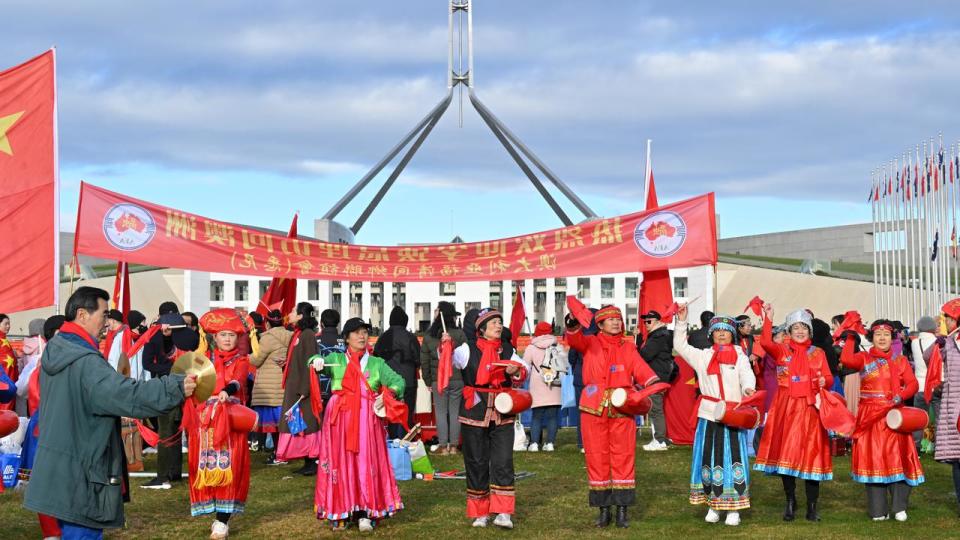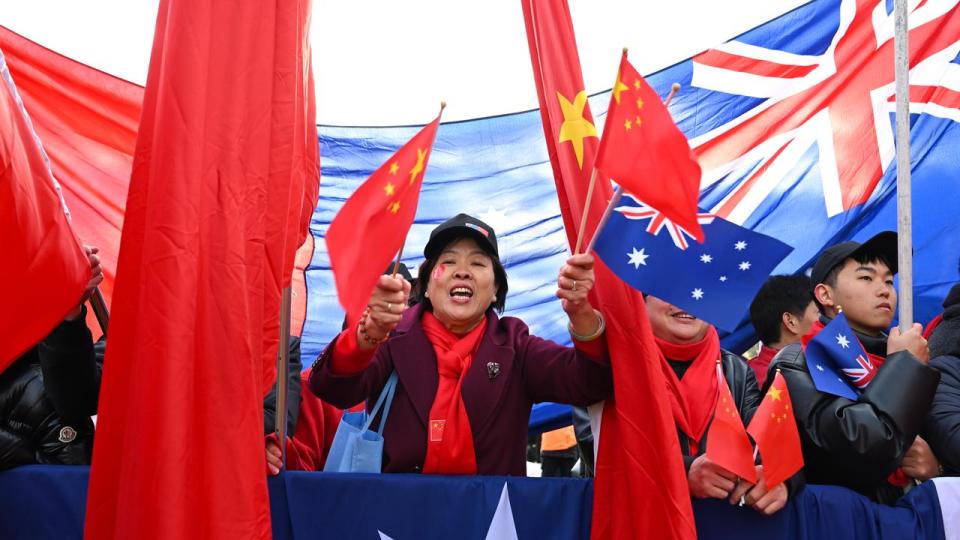Protesters cast light on human rights amid China talks
As Chinese Premier Li Qiang was cosying up with Australian Prime Minister Anthony Albanese in Parliament House, decades-long tensions were flaring outside.
Mr Li may have glimpsed pro-China supporters waving five-star red flags as his motorcade wove past Federation Mall on Monday, but he couldn't miss scores of protesters lining the streets of Canberra with banners decrying human rights abuses in Tibet and Xinjiang.
A man on a bicycle was dragged away by police but the two groups kept their demonstrations largely peaceful as the unfamiliar sounds of dissent drowned out the welcome for the Chinese Communist Party's second-most senior official.
After years of punitive trade tariffs, Beijing and Canberra appear to have buried the hatchet, with a new memorandum of understanding laying the foundations for increased economic participation.
Kyinzom Dhongdue, an Australian Tibetan community spokeswoman, called on the Australian government to put "human rights before profit" and cast off its trade ties with China.
"As Australia and China have got richer and richer together, Australia has actually helped the Chinese government carrying out its atrocious human rights abuses in Tibet with impunity," she told AAP.
"Trade has helped the Chinese government to normalise its human rights abuses."

After both her father and grandfather were imprisoned by Chinese authorities, Ms Dhongdue's family fled the Buddhist region in the 1950s. But she says her family's sense of culture has remained strong in exile.
"Even though we haven't seen our homeland, we haven't touched that soil, we haven't breathed that fresh air of Tibet we all feel very close," she said.
"China's ultimate aim is to completely assimilate Tibetans into Chinese society and they do this by destroying our culture."
She compared Tibetan children who had been removed from their families and sent to government-run boarding schools to Australia's stolen generation.
"China is repeating that colonial project in Tibet," Ms Dhongdue said.
"China knows they have destroyed our homes, they have destroyed our monasteries but they know that they still haven't managed to kill the Tibetan culture.
"So what they're trying to do is kill the Tibetan in that child by taking them away from their families, from their culture."

Holding a pro-Hong Kong banner alongside Ms Dhongdue was Andy Cai, who says he was representing friends imprisoned in the former British colony for pro-democratic activism.
"During the last 30 years, the Chinese government has murdered a lot of people in Tibet, in Hong Kong, in Xinjiang," he said.
He, like many others, had been driven to protest by Beijing's crackdown on dissent in Hong Kong - once a bastion of democracy and free speech.
"I'm really concerned about the future of Hong Kong, especially I care about political prisoners like my friends," Mr Cai said.
"But I have faith and I fight with them and I stand with them so one day they can be freed and they are not alone."


